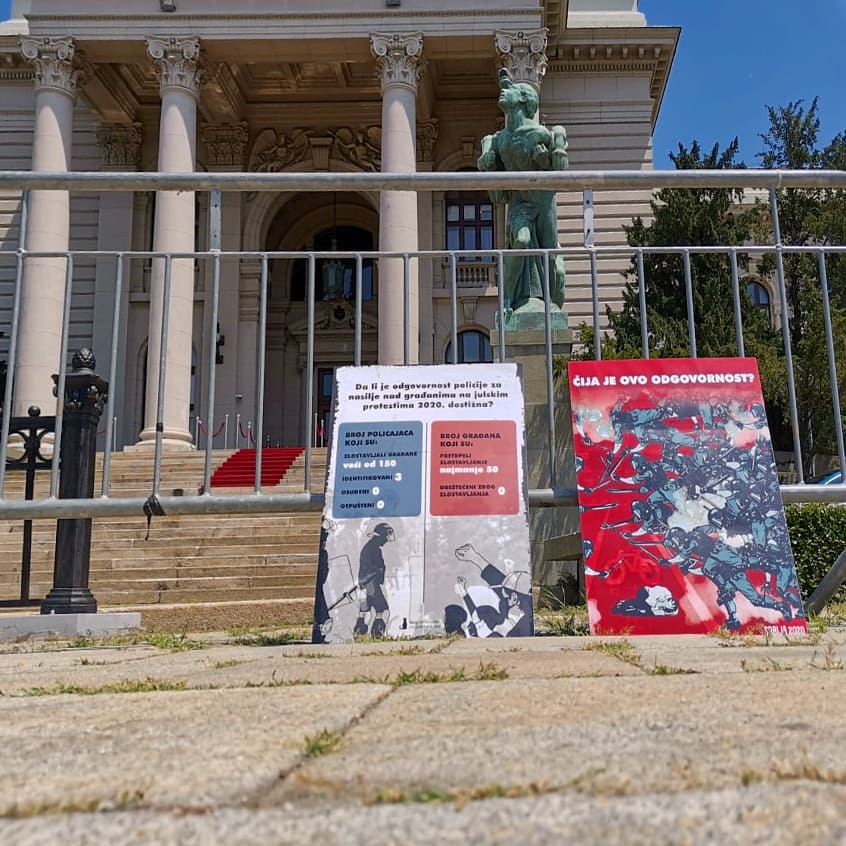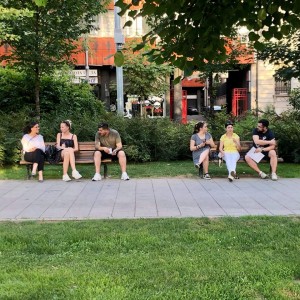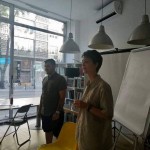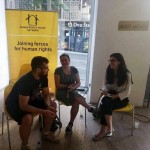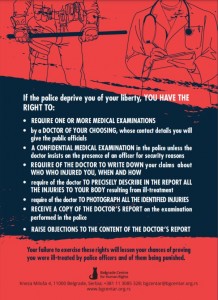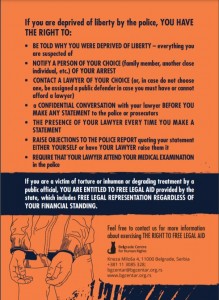Still without conditions for CSO participation in the development of the Strategy for an Enabling Environment for Civil Society
Regarding the frequent official and informal calls on civil society organizations to get involved in the consultation process with the Ministry of Human and Minority Rights and Social Dialogue for drafting The National Strategy for an Enabling Environment for Civil Society Development in the Republic of Serbia, we remind that the intolerant atmosphere towards civil society, due to which civil society organizations made their decision not to participate in this process in April of this year, has not changed.
On that occasion, the following requests were issued to the Ministry of Human and Minority Rights and Social Dialogue and the Government of Serbia:
- that the Administration for the Prevention of Money Laundering and Terrorist Financing publish a report on the case of “the List”, and that the competent institutions initiate the procedure of establishing responsibility for exceeding the authority and official powers of the Administration prescribed by the Law on the Prevention of Money Laundering and the Financing of Terrorism;
- that the National Assembly put a stop to MPs violating the Code of Ethics and abusing this institution to spread lies, libel and intimidate the civil sector;
- to stop tabloid campaigns against the civil sector and independent journalists in the pro-regime media.
In this regard, we would like to remind you once again that the egregious attacks on members of civil society and independent media that took place in the National Assembly of the Republic of Serbia during March 2021 passed without any epilogue. In those days, several MPs, including the head of the largest parliamentary group, Aleksandar Martinović, went beyond acceptable behavior and abused the institution of Parliament to launch verbal attacks spreading intolerance and hatred towards the civil society organization CRTA and the independent investigative outlet KRIK, as well as for malicious personal attacks on several activists. Furthermore, even after one year since the case of “the List”, no steps have been taken to determine the responsibility of the Administration for the Prevention of Money Laundering and Terrorist Financing for the fact that this body sent a request to all banks in Serbia to submit data on the accounts and financial transactions of 37 organizations and 20 individuals from the media and civil society without a clear legal basis.
CSOs have repeatedly asked for dialogue with the authorities in order to urgently resolve the requests submitted to the Ministry of Human and Minority Rights and Social Dialogue, which, in turn, has publicly declared itself incompetent to address pressure and attacks on civil society. It is the responsibility of this ministry, as well as all other institutions, to, with respect to the Constitution and the laws of Serbia, influence the provision of basic conditions for the work and activities of civil society, before starting any process that would promote an enabling environment.
If the institutions of the state of Serbia sincerely wish to create a stimulating environment for the work of civil society with this Strategy, and do not simply intend to engage in further simulation of dialogue and democracy, we believe that they will do everything in their power to fulfill our previously sent requests. In order to enjoy the high standards of modern democracy, open society and media freedoms, nurture a culture of dialogue and create a tolerant social environment, it is necessary for key social and political actors to see civil society as an important partner, whose activities are aimed at improving the living conditions of all Serbian citizens.
Signatories:
- Civic Initiatives
- Belgrade Center for Security Policy
- Belgrade Center for Human Rights
- Catalyst Balkans
- European Policy Centre
- Center for Research, Transparency and Accountability (CRTA)
- European Movement in Serbia
- Humanitarian Law Center
- Youth Initiative for Human Rights (YIHR)
- Initiative for Economic and Social Rights – A11
- Lawyers’ Committee for Human Rights – YUCOM
- National Coalition for Decentralization
- Autonomous Women’s Center
- Independent Journalists’ Association of Serbia
- Bureau for Social Research (BIRODI)
- Youth Center CK13
- Policy Center
- Partners Serbia
- Slavko Ćuruvija Foundation
- Trag Foundation
- Transparency Srbija
- Vojvodina Civic Center
- Center for Rule of Law
- PROTECTA







